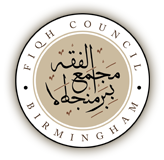Phone 07858 344 378 (9am-4pm Weekdays)
WELCOME to the Fiqh Council Birmingham (FCB). The FCB was establsihed to help meet the religious needs of the Muslim community. It offers faith based services in Islamic marital arbitration (Talaq/Khula etc.), training Islamic scholars and Imams, fatwa service and more...read more >
ARTICLES
What Does Islam say on Forced Marriages?
What Does Islam say on Forced Marriages?
Islamic teachings on marriage indicate that the right of the individual especially the lady to choose her marriage partner free of any coercion or pressure was vouched safe by the Prophet of Islam himself over fourteen centuries ago, long before women’s rights were generally considered worthy of making in to a law. In short, a woman should not be forced into a marriage and such a forced marriage is simply not recognized in Islamic law as outlined in the evidences cited below.
“It is narrated by Khansa Bint Khidaam Al-Ansari that;
Her father gave her in marriage when she was a matron (previously married) without her consent. So she went to Allah’s Messenger peace be upon him and he declared that marriage invalid.”
Recorded by Al-Bukhari; Hadith number 5138, chapter 43 The Book of Marriage.
عن خنساء : أن أباها زوجها وهي ثيّب فكرهت ذلك ، فأتت رسول الله صلّى الله عليه وسلّم فرد نكاحه .
]صحيح البخاري:باب اذا زوج ابنته و هي كارهة فنكاحها مردود[
“It is narrated on the authority of Ibn Abbas that;
A young virgin lady came to the Prophet peace be upon him and mentioned that her father had married her off without her consent.
Thus the Prophet peace be upon him gave her the choice (to remain in the marriage or to leave it).”
Recorded by Abu Dawud; Hadith number 2096, chapter 25 The Book of Marriage.
حدثنا عثمان بن أبي شيبة ثنا حسين بن محمد ثنا جرير بن حازم عن أيوب عن عكرمة عن ابن عباس: أن جارية بكرا أتت النبي صلى الله عليه وسلم فذكرت أن أباها زوجها وهي كارهة فخيرها النبي صلى الله عليه وسلم .
] سنن أبي داود: باب في البكر يزوجها ابوها و لايستامرها [
“It is narrated on the authority of Aisha that; A young lady came to her and said, my father has married me off to my paternal cousin in order to raise his status through me, whilst I had not consented. She (Aisha) said, Sit down (and wait) until the Prophet peace be upon him arrives. The Prophet peace be upon him came and so she informed him (of her complaint) thereupon he (the Prophet) sent word to her father and called him and ruled that the final decision rests in her hands (to accept or reject the marriage). She said, O messenger of Allah! I have agreed to consent to what my father has done, however, I wanted to know if women have any say in the matter.”
Recorded by Sunnan Al-Nasai; Hadith number 3271 chapter 36 The Book of Marriage.
عن
عائشة أن فتاة دخلت عليها فقالت إن أبي زوجني ابن أخيه ليرفع بي خسيسته وأنا
كارهة قالت اجلسي حتى يأتي النبي صلى الله عليه وسلم فجاء رسول الله صلى
الله عليه وسلم فأخبرته فأرسل إلى أبيها فدعاه فجعل الأمر إليها فقالت يا
رسول الله قد أجزت ما صنع أبي ولكن أردت أن أعلم أللنساء من الأمر شيء
[البكر يزوجها
ابوها وهي كارهة, سنن النسائ:كتاب النكاح]
A question does however remain as to why we sometimes find Muslims who still insist on forcing women into marriage without their consent?
Unfortunately some countries in the Muslim world such as those of the Indian sub-continent do sometimes give cultural practice predominance over Islamic teachings. This has led to a misconception where the cultural practice of forced marriages is somehow mistakenly understood to be endorsed and sanctioned by Islam.
The above narrations clarify this misunderstanding and unequivocally establish the Islamic right of individuals and in particular women to marry without coercion. Further detailed rulings regarding the conditions for the correctness and validity of a marriage contract can be referred to in the law manuals of the four recognised schools of Islamic jurisprudence.
FCB Resource Library Articles © 2015
